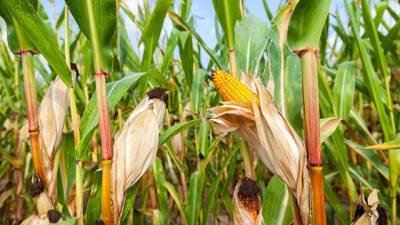BENGALURU, 25 April 2024: Maize, the "golden grain," is a vital cog in India's agricultural machinery. It serves as a staple food in some regions, a key ingredient in animal feed, and a raw material for various industrial applications.
Understanding which states are leading the charge in maize production is crucial for analyzing trends, identifying areas for improvement, and ensuring future food security. This report delves into the top maize-producing states in India for the 2022-23 season, exploring their production figures and future outlooks.
Maize Monarchs: A State-by-State Analysis
- Karnataka (Estimated Production: 12.5 Million Tonnes): Karnataka reigns supreme as India's maize king. Its favorable climate, well-developed irrigation infrastructure, and adoption of high-yielding summer maize varieties like DHQPT-9001 have significantly contributed to its dominance.
Future Outlook: Karnataka is expected to maintain its leading position. Continued investment in irrigation, promotion of drought-tolerant varieties for drier regions, and better market linkages for farmers can further solidify its position.
- Madhya Pradesh (Estimated Production: 10.8 Million Tonnes): Madhya Pradesh emerges as a strong contender, boasting vast agricultural land and a focus on both Kharif (summer) and Rabi (winter) maize cultivation. Varieties like PEHM series and Bioseed-707, particularly suited for Rabi season under irrigation, contribute significantly to its production.
Future Outlook: With ongoing efforts to improve water management practices and promote farmer education on best agricultural practices, Madhya Pradesh has the potential to narrow the gap with Karnataka.
- Maharashtra (Estimated Production: 9.2 Million Tonnes): Maharashtra, a powerhouse in agriculture, secures the third position. Its diverse climate allows for cultivation of both summer and baby corn varieties. Additionally, the state's proximity to major ports facilitates maize exports, offering lucrative opportunities for farmers.
Future Outlook: By focusing on research and development of climate-resilient varieties and strengthening farmer producer organizations (FPOs) for better market access, Maharashtra can further enhance its maize production potential.
- Andhra Pradesh (Estimated Production: 8.5 Million Tonnes): Andhra Pradesh has emerged as a rising star in maize production. The state boasts high productivity, with districts like Krishna and West Godavari achieving impressive yields.
Future Outlook: Continued focus on high-yielding varieties, coupled with improved post-harvest infrastructure and processing facilities, can propel Andhra Pradesh further up the maize production ladder.
- Rajasthan (Estimated Production: 7.8 Million Tonnes): Despite water scarcity challenges, Rajasthan holds a significant position in maize production. The adoption of drought-tolerant varieties like DL 708 and short-duration varieties like Pratap Makka 2 allows for cultivation in drier regions.
Future Outlook: Research on even more water-efficient and heat-tolerant maize varieties, along with micro-irrigation initiatives, is crucial for Rajasthan to sustain its maize production and potentially increase its share.
Beyond the Top Five: A Look at Emerging Players
States like Uttar Pradesh, Bihar, Telangana, and Gujarat are also showing promising trends in maize cultivation. Government initiatives promoting maize production through subsidies and training programs are contributing to this growth.
A Collaborative Future for Indian Maize
Collaboration between all stakeholders is key to ensure India's continued success in maize production. This includes:
- Government: Continued support through research on drought-tolerant and high-yielding varieties, subsidies, and market infrastructure development.
- Farmers: Adoption of best agricultural practices, water conservation techniques, and utilization of advanced technologies.
- Private Sector: Investment in post-harvest infrastructure, processing facilities, and creation of robust market linkages for farmers.
India's maize production landscape presents a vibrant tapestry of states, each contributing significantly to the national harvest. By understanding the strengths and challenges of each region, stakeholders can work together to optimize production, empower farmers, and ensure a future where India's maize fields continue to flourish.




















